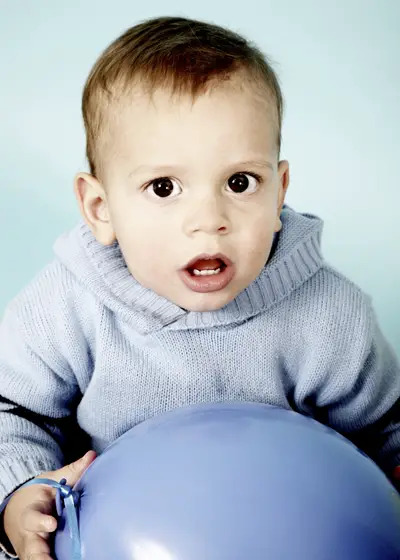With more than 9 million children diagnosed with asthma each year, it is sometimes easy to assume a child is suffering from asthma when they begin to wheeze or cough, particularly after strenuous exercise or play. If, in fact, an asthma diagnosis is confirmed, treatment often includes a variety of drugs, inhalers, a nebulizer and even steroids.
 |
However, what if the cause of the wheezing or difficulty in breathing is not asthma at all? What if it is a physical abnormality that can’t be treated with drugs? Every month, a number of patients who come in to my office with a |
VOCAL CORD DYSFUNCTION
When the vocal cords are operating properly, they open widely when an individual takes a breath. Vocal cord dysfunction occurs when, instead of opening, the cords actually narrow and restrict proper air flow — resulting in a
wheezing or gasping for air particularly during high anxiety situations, or after exercise. Symptoms can completely disappear when the individual is calm.
Asthma on the other hand, an inflammatory process of the airways, rarely improves without some form of medicine.
Symptoms of VCD can include:
—Sudden shortness of breath
—Exercise intolerance
—Intermittent hoarseness and/or wheezing
—Chronic cough and/or throat clearing
—Chest and/or throat tightness
—”Just having trouble getting air in.”
—”I make a noise when breathing in.”
It is difficult to diagnose VCD with a standard physical exam, although sometimes I may be fortunate enough on a physical exam to hear the characteristic sound that children with VCD make when they are symptomatic. Alternatively, VCD can often be identified with pulmonary function testing, a simple test of breathing performed in the pediatric pulmonologist’s office.
In some patients, VCD can be treated by sending the child to a speech therapist who will work with them to control their vocal cords, much like singers are taught to do. However, another very effective treatment for children seems to be relaxation imagery. By working with children and teaching them whole body relaxation through imagery and imagination, the child is able to “treat” himself during the times he feels symptomatic. Sometimes, however, simply identifying the condition of VCD and providing children and parents with reassurance and education about the condition is enough to result in resolution of symptoms.
HABIT COUGH
“Habit cough” also likes to masquerade as asthma. I see a few children each month who have been treated with asthma or allergy medication, for prolonged periods of time, who don’t need it and who can actually end up controlling the cough when taught how to do so. Habit cough could also be considered a tic, something over which the child seemingly has no control. It may have even started as a respiratory illness, but then, long after the illness is gone, the cough remains. Obtaining a good background on the patient, performing a thorough physical exam and a testing for lung function, will usually result in a diagnosis for this very troubling condition.
Once again using whole body imagery, children can be taught to control their symptoms on their own. This simple procedure is not only safe and effective, it provides the child with a sense of control and ultimately increases their confidence and self-esteem. It is a simple form of ‘talk therapy’ and most children see a positive change after two 10- to 30- minute sessions.
Because diagnosis of these problems can be tricky, it is best left to a pediatric pulmonologist. Any child thought to be suffering from asthma or chronic cough should be checked to make sure they are not taking unnecessary medications for an illness they don’t have.
LEWIS J. KASS, M.D. is the founder of the Westchester Pediatric Pulmonology and Sleep Medicine Center in Mount Kisco. He is a Yale-trained, board certified pediatric pulmonologist specializing in pediatric respiratory medicine and sleep disorders, and was featured on the PBS program, ‘Keeping Kids Healthy’. He can be reached at (914) 242-0445 or via email at [email protected].





















